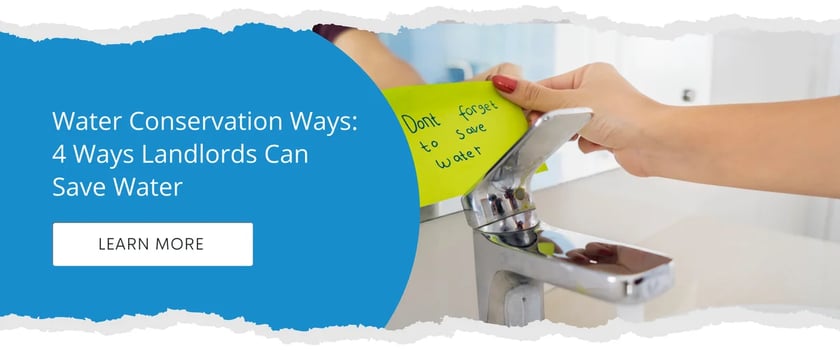7 min read
Evicting a Tenant Without a Lease in NYC: What You Should Know
![]() David Schwartz
Dec 4, 2024 5:30:00 PM
David Schwartz
Dec 4, 2024 5:30:00 PM

Owning a multi-family building comes with many duties, including maintaining units, managing staff, tracking expenses and saving water (money).. But of all the tasks associated with building ownership, eviction has to be the worst!
No one likes evicting a tenant, especially when that tenant has a lease. But, as we all know, there are some instances when asking someone to move on is completely necessary:
- When rent is past due or
- When a tenant has seriously violated the terms of the lease agreement.
Of course, the first reason is obvious—no pay, no stay. Unsurprisingly, there are many potential ways a tenant can violate a lease agreement: Damage to property, excessive disruptions, and illegal activity are just a few of them. Regardless of the reason, the process for eviction remains the same.
How to Evict a Tenant With a Lease in NYC
Unfortunately, it’s not so easy to evict a tenant. The first step is serving the tenant a termination notice, but there are different types of notice. If you want to evict due to the tenant not paying the rent, a 14-Day Demand For Rent Notice must be issued. For tenants who fail to comply with other terms of the lease, a 30-Day Notice should be given.
If the tenant doesn’t comply with the notice, you can then file a legal eviction lawsuit in court. Legal eviction is called a Summary Proceeding, and tenants must be notified of it through someone other than yourself delivering a Notice of Petition and a Petition.
Both papers must be served at least 5 days before the predetermined court date, and the court date must take place within 12 days of being served. Although time-consuming, the process is fairly straightforward when you have clear evidence of a violation.
But what if there is no lease? Or if a tenant has stayed on month-to-month after their previous lease ended? What rights do these tenants have?
How to Evict a Tenant in NYC With No Lease
First, let's discuss why a tenant or landlord wouldn't want a lease in the first place. Interestingly, it's not uncommon for both landlords and tenants to be wary of signing one. The deciding factor comes down to a preference for either freedom (and risk) or stability (and security).
When a tenant okays a month-to-month rental agreement (or just living in an apartment with no agreement whatsoever), they can walk away whenever they want. Transitory arrangements are popular for people who either move frequently or who want to "try-out" particular areas in new cities.
The benefit to the landlord in this situation is that it’s simple to evict. The exceptions are:
- Communities with some form of rent regulation, stabilization, or control
- Tenants who have stayed on month-to-month after finishing a lease
It's important to note that tenants who did fulfill their lease agreements (and are now month-to-month) are still protected by original lease terms in NYC.
Here's what you need to know for most tenants who don’t have a lease:
- You must give a 30-Day Notice The tenant must either a). Owe rent or b). Have been given a month's notice to move out.
- The notice must be provided in writing (i.e. Notice to Quit).
- You must let the tenant know they can contest the eviction in housing court.
- You must make three "good faith" efforts to hand-deliver the notice. After three failed attempts, you're permitted to mail the notice or leave a copy at the residence.
Important: The notice must not terminate the tenancy until the last date for which rent has been paid or later. For example, if rent is paid through the end of September, your notice period cannot end before September 28th. The notice must provide the tenant a full 30 days.
NYC Tenant Evictions
It’s important to note that if a tenant is being evicted due to not paying, if they pay what’s owed, they can stop the eviction process. In general, it’s crucial that landlords do everything by the book when it comes to tenant evictions. Otherwise, you can end up being sued by your tenant.
While evicting a tenant is never easy, it's sometimes necessary. The advice in this article is meant to provide an overview of the eviction process. It is no substitute for professional legal counsel. Check out New York State law (N.Y. Real Prop. Law § 232-b) for the exact rules and procedures for how to prepare and serve termination notices.
Learn more about cost effective solutions and how The Water Scrooge™ can save you time and money.
Learn how to fix 80% of your leaks and how a Water Consultant can help save you money.
Managing/ Handling Tenancy Without a Lease Agreement
Being a landlord, you should always know what to do if your tenant is without a lease. A tenancy without a lease agreement is also known as a tenancy at will/month-to-month tenancy. It is a rental arrangement without a formally written lease that binds the landlord and tenant. Once you and the tenant verbally agree to terms, the tenancy works under such terms. The local laws guide the tenancy when terms aren't discussed.
Landlord Considerations: Tenant Rights and Responsibilities
Without a Lease
Tenants fulfill certain local landlord-tenant laws without a formal lease agreement. Here are the tenant rights with no lease agreement:
The Right to Habitability
Landlords should know that tenants are liable to reside in a safe property that fulfills primary safety, structural, and health standards. The right to habitability comprises these aspects below:
- Structural Integrity: A property should have a strong structure without risks of collapse and critical damages that may terrify residents.
- Lighting and Ventilation: The property should offer natural/artificial lighting and ventilation to create a healthy living ambiance.
- Pest Control: The property should be free of infestations, insects, and rodents.
- Trash Receptacles: The rental property should have trash accumulation and disposal benefits.
- Sanitation Facilities: Being a landlord, you should offer and retain sanitary facilities, such as sewage systems and toilets.
The Right to Privacy
The right to privacy requires the landlord to respect tenant areas by giving advance notice before the entrance. Such notice should be between 1 to 2 days to ensure your tenants are informed and may prepare. The right to privacy governs the notice manner and favorable reasons for your entry, such as:
- Routine inspections: As a landlord, you should check a property's condition and ensure it is perfectly maintained.
- Maintenance and repairs: A property owner requires full maintenance or repairing activities
- Property showing: You should show a property to target buyers or tenants as a landlord.
Protection Against Discrimination
According to the Fair Housing Act, tenants get protection from discrimination depending on religion, color, race, sex, national origin, family status, and disability. The state/local laws ensure that all residents and applicants get equal housing opportunities and treatment with no prejudice. Landlords should follow such standards during the rental process.
Security Deposit Rights
A tenant without a lease in NYC has some rights to the security deposit comprising:
- Right to a quick return: State laws specify how fast a landlord should give a security deposit after a tenant empties the property.
- Deduction Limits: You may deduct from the security deposit for excessive damages, such as broken windows, holes in walls, and damaged appliances beyond the expected use level in the tenancy.
- Required Itemization: You should give a detailed list explaining every deduction if a property owner takes security deposit deductions.
The Steps Landlords Must Take for a Fair and Legal Eviction
A willing tenant is liable for a fair eviction process even without a written lease. Such protection ensures landlords like you follow effective legal processes. Here are the crucial parts of this right:
- Formal Notice: Landlords should give tenants a formal eviction notice in advance. The notice period differs by state; however, it usually includes sufficient time for a tenant to either fix the violation or get an alternative housing option.
- Legal Eviction Grounds: A property owner may only start eviction for common legal reasons, including rent non-payment and illegal activities on the property.
- Legal Procedures: Landlords should follow state-oriented legal procedures for an effective eviction procedure, which involves filing a court action and receiving a court order before evicting a tenant.
- Retaliatory Eviction Protection: Tenants have retaliatory eviction protections, such as getting evicted for asking for repairs, for which the landlord is legally responsible.
The Right to Repair and Deduct
Tenants may do repairs themselves and deduct the repair cost from the rent, considering state laws and limitations if a landlord doesn't invest in repairs. Here are certain conditions that govern this right:
- Notification: Tenants should first inform their landlord regarding the required repairs and wait for them to address such issues.
- Limitations: Such a right is subjected to state laws that may define the constituents of vital repairs and limit the amount a tenant may deduct.
- Documentation: Tenants are required to keep receipts and maintain detailed records of the repairs.
- Compliance: Tenants must ensure to comply with extra-legal rules specified in the state legislation.
How to Ensure Tenants Fulfill Their Legal Obligations?
A tenant without a lease has the obligations below as a renter:
- Rent Payment: Tenants should pay rent in a timely manner, even without a lease, at the settled amount and schedule, depending on the landlord's conditions.
- Property Maintenance: Tenants should maintain a property and prevent damages. They should throw garbage to keep the rental property clean and ensure it doesn't have adverse effects because of negligence.
- Law Following: Tenants should use property legally, which includes not doing illegal activities in the rental unit.
- Occupancy Limits: The total number of people who may live in the rental unit have general or verbally agreed limits even without a written lease. Tenants should abide by such limits.
- Notification of Required Repairs: Tenants should inform the landlord of any required repairs and maintenance issues, which the landlord should fix.
- Appropriate Notice: Tenants should give appropriate notice, usually of 30 days, since it's common with monthly tenancies if they plan to move out.
- Property Condition: Tenants should return the properties when moving out in the same condition as when they moved in and with normal wear and tear.
What are the Rights of Tenants Without a Lease?
Renting properties without official lease agreements or proper rental agreements may seem like an informal activity. Even though tenancy without a lease may seem informal, tenants still have legal rights that landlords must consider.
With extensive knowledge, a landlord ensures the living situation stays compliant, and any future disputes may occur within the legal boundaries. You should reach out to local tenant rights organizations and legal aid to protect your rights. They can give you clarity on your current issues and help you make informed decisions. A tenant without a lease can protect themselves since they know their rights irrespective of the lease status.
The Bottomline
So, now you know the most important things about evicting a tenant without a lease in New York. Tenant eviction can always be a complicated process, but things can go smoothly once you do the right things at the right time.
About The Water Scrooge™
The Water Scrooge™ offers water conservation ways and products to multi-family landlords and homeowners, including: shower flow controllers, Leak Detection Systems, Toilet Leak Prevention Devices (The Toilet Scrooge™), water flow management devices (SMART Valve™), toilet calibration and DIY products.
Also featuring The Water Scrooge™ App. Our app empowers your team to carry out the installation of our kits. With it, you can also record and track data points about the units (other than water usage).




